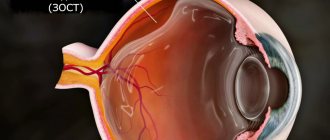Fear and phobia: what are the differences?
Many people wonder what the fear of dentists is called? Dentophobia, dental phobia or odontophobia are scientific terms that refer to an overwhelming fear of dental treatment. Few of us, having learned about the need for dental treatment, go to the doctor with joy and good mood. Despite the fact that modern dentistry is as safe and painless as possible, the fear of dentists lives in each of us, regardless of gender, age and profession. Sometimes children and women in the dentist’s chair behave calmer than brutal bearded men. However, fear of dentists and phobia are completely different things. Fear is a natural state and occurs in potentially dangerous or uncomfortable environments. Phobia is a pathological condition that is characterized by autonomic disorders and the inability to adequately assess what is happening and make decisions. Some experts call a pronounced, heightened sense of fear a phobia, but this phenomenon is much more complex. Phobia is one of the manifestations of neuropsychic disorders and, if not corrected, can lead to serious complications and mental disorders. The presence of a phobia is confirmed by a number of characteristic symptoms, many of which manifest themselves on a physical level.
Working on your fear of the dentist
So, we have introduced you to the basic methods on how to stop being afraid of the dentist. Now your task is to decide to overcome this fear. Spend a little time on what specifically frightens you during the dental treatment process – the type of instruments, the fear of the doctor’s hostility, or the high cost of treatment?
Work with each specific fear, try to analyze it, or even better, imagine it in an exaggerated version. Imagine. That you have come across an evil doctor who does nothing but hurl reproaches at you. Introduced? Naturally, you immediately realized that such a doctor looked like a fairy-tale character. Are you afraid of expensive treatment? Discuss all possible options with your doctor, he is well aware that many types of treatment are not available to a large number of people due to their high cost.
Fear of the dentist does not go away immediately, but it begins to disappear immediately after your first visit to the dentist. Each subsequent visit to the dentist will be easier and easier for you, and when you see the result - straight, beautiful teeth and healthy gums, you will understand that all your fears were unfounded.
Having successfully overcome your fear of the dentist, you can now help your friends, family and children cope with this fear as well. After all, fighting fears with friendly support is more effective and confident. After treatment in our clinic, you will receive a special invitation for your loved one, acquaintance, friend or colleague to a free dental examination. Isn’t it a pleasure to give a beautiful smile to someone dear to your heart? We are waiting for you and your loved ones in our Dentistry on Shchelkovskaya, we will move towards victory over the fear of dentists together!
Symptoms of dentophobia
Dentophobia manifests itself on two levels: physical and psychological. In the first case, we are talking about very specific symptoms.
- Muscle tension;
- Headache;
- Increased sweating;
- Dilated pupils;
- Nausea, vomiting, gastrointestinal upset.
Of course, these physical manifestations are characteristic of the active stage, when the patient is faced with the need to visit the dentist. Psychological manifestations of dental phobia most often occur at the peak stage, i.e. when trying to start treatment. In this case, a person panics: he is unable to control his actions, becomes aggressive, or, on the contrary, falls into numbness and cannot move. All of the above is a reaction of the central nervous system to stress. If a person has a severe phobia, then the limbic system of the brain transmits special signals to each other, which provoke such behavior.
Causes of dental phobia
Experts distinguish two types of dental phobia: congenital (imaginary) and acquired. As a rule, the formation of dental phobia is due to a whole complex of reasons, on the basis of which one can draw a conclusion about its nature. Here are the most common factors.
- Heredity. If one of the parents suffered from dental phobia or was afraid of medical intervention in principle, then this fear can be passed on to the children. The likelihood of transmitting dental phobia through the female line is especially high;
- Stress and chronic neurosis;
- Attention deficit disorder. In this case, dental phobia usually manifests itself from early childhood;
- Mental illnesses;
- Low sensitivity threshold. This feature is acutely felt with toothache, as well as with poor or absent anesthesia;
- Disorders of the central nervous system;
- General emotional sensitivity. Stories from friends, watching videos and photographs of dental treatment can develop dental phobia in a person;
- Fear of blood and medical intervention in general;
- Fear of anesthesia (at the dentist or other doctor). This is due to a fear of needles and injections in general;
- Dentophobia develops after a negative experience with dental treatment (especially in childhood).
Why am I afraid to go to the dentist or where do my fears come from?
The very first and most important point that allows you to overcome your fear of dentists is to understand the cause of such a problem. Each of those suffering from dental phobia has its own personality, but in general, the factors that provoke the phobia are quite similar.
- Extremely negative previous experience with dental treatment. Representatives of the older generation probably remember the “Soviet standards” of providing dental care: a roaring drill, minimal anesthesia (or even its absence), an unpleasant taste in the mouth after arsenic. At the same time, treatment of one tooth most often took place in several visits, which also did not give patients positive emotions. All this contributed to the development and strengthening of fear of the dentist, and subsequently to the formation of severe phobias.
- At the present stage, dentistry offers patients a huge number of new services, many of which have foreign and incomprehensible names (for example, Opalescence, White light or Zoom). It is this uncertainty that makes a person afraid to go to the dentist. Trying to find information on the Internet can often worsen the phobia due to negative reviews and comments from “experts” that frighten patients on dental resources.
- Many people are afraid to go to the dentist because of bad teeth . This fear is often fueled by some doctors who criticize the patient’s attitude towards his own health. The result is a vicious circle: the worse the condition of the teeth, the more pronounced the phobia becomes.
- Some women are afraid to go to a male dentist . This is due to the fact that representatives of the fair sex are embarrassed to look funny with their mouths wide open. In addition, a visit to the dentist's office implies restrictions on the use of decorative cosmetics, which also confuses some ladies.
- If a child is afraid to have his teeth treated, then in some cases the cause of this phenomenon should be sought in the behavior of the parents . Moms and dads (who sometimes suffer from dental phobia themselves) tell their children that if they misbehave, the doctor will pull or drill their teeth. This is done so that the child sits calmly in line in front of the dentist’s office. As a result, children begin to fear even the simplest and most harmless dental procedures. And neither a teenager nor an adult can overcome such fear, rooted in childhood.
In addition to the reasons listed above, dental phobia can be caused by mental illness or a low pain sensitivity threshold . Sometimes a similar problem occurs during pregnancy , when the expectant mother is afraid that the treatment may harm her baby.
Why is it necessary to fight dental phobia?
A person with dental phobia, as a rule, refuses to go to the dentist even when absolutely necessary. No reasonable arguments have any effect on him: even with severe pain and advanced diseases, he will put off visiting a doctor. But in no case can you fight dental phobia by refusing to visit the dentist. If you do not visit a doctor in time, caries turns into pulpitis, the gums become inflamed to the point of periodontitis, and severely damaged teeth can only be removed. In the Middle Ages, cases of death after complications of dental diseases occurred quite often and there is a logical explanation for this. The lack of proper and timely treatment has a devastating effect on the health of the entire body as a whole: infection in the oral cavity leads to the development of abscesses and sepsis, diseases of the digestive tract, inflammation of the endocrine glands, rheumatism, bronchial asthma and other ailments. Everything in our body is interconnected, so we must definitely look for ways to cope with pathology. Read on to learn how to deal with dental phobia.
Reasons for fear of the dentist
To stop being afraid of the dentist, you must first understand the reasons that cause this fear. Such reasons include:
- vivid childhood memories when a visit to the dentist was accompanied by pain and the sounds of a drill;
- panic fear of just the sight of dental instruments;
- fear of feeling pain, fear of the sight of blood
These main reasons can be supplemented by indirect ones: people are afraid of medical errors and expensive treatment, afraid to show their teeth to an unknown person, and feel weak and helpless in the dental chair.
How to get rid of dental phobia?
For a long time, dental phobia was not perceived as a phenomenon worthy of attention. Parents forcibly dragged their crying and kicking children to doctors' offices, thereby making matters worse. Adults suffered no less: they either put off going to the dentist until the last minute, or went through serious pain and did not find understanding from others. This was especially true for men: a person with dental phobia can easily faint at an appointment. For many men, this is a strong blow to their pride. Fortunately, today dental phobia is taken much more seriously. A number of publications write about how to overcome fear of dentists, and experts conduct research to improve the effectiveness of various measures. There are a number of techniques that can help, if not get rid of dental phobia completely, then at least eliminate its most severe manifestations. Methods for correcting dental phobia are divided into medicinal and therapeutic.
- Drug treatment of dental phobia. The main drug for correcting severe forms of dental phobia is the antidepressant Tsipramil and other drugs similar in action and composition. Antidepressants help eliminate panic and anxiety and normalize the production of serotonin. Immediately before starting treatment, sedatives may be recommended, as well as natural remedies that have a calming effect.
- Therapeutic treatment. The psychotherapeutic method is based on analyzing the causes of dental phobia and overcoming fear by the patient himself. The main role here is played by a psychologist who seeks an individual approach to the patient and helps him cope with his problem. This allows you to look at the problem from the outside and prepare for a trip to the dentist.
Important tips for patients with dental phobia
- It is necessary to treat your teeth! The principle of postponing problems “for later” will take away more time, nerves and costs.
- Make an appointment with a psychologist! The root of the problem may be deeper than you think, and a specialist will help you figure out what's what.
- Remember, you always have a choice! Learn information about pain relief methods used in dentistry, as well as modern methods of dental treatment without a drill. Using your knowledge, choose the clinic that keeps up with the times.
- Find a contact with a doctor! You need a highly qualified specialist who will understand your problem and be ready to help you solve it. Try to visit the same specialist.
- Eliminate the slightest reason for stress! Before treatment, find out what will be done for you, how, and how much it will cost.
- A pleasant atmosphere is important! Choose a clinic with a welcoming, beautiful environment without the strong smell of medicine, friendly staff and no queues or crying children.
- Dentophobia in a child often occurs after the first unsuccessful treatment. Contact specialized clinics, where everything is subordinated to the child’s comfort. Good specialized clinics employ doctors who know the peculiarities of the child’s psyche and know how to find contact with almost any child.
Publisher: Expert magazine about dentistry Startsmile.ru
Author of the material: Yaroslav Ikonnikov











